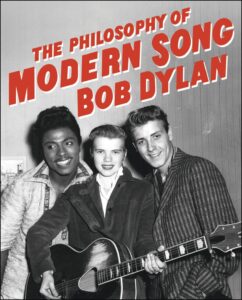With Dry Cleaning’s second album released in October—building on the unexpected success of their infectious 2021 debut New Long Leg—and the subsequent (and harder to fathom) popularity of Wet Leg’s chatty single “Chaise Lounge,” it seems what I want to call the talkcore movement’s got, you know, legs. Dublin’s Fontaines D.C. and Yard Act out of Leeds are more closely aligned with patron spoken-punk saint Mark E. Smith, the fallen hero of the Fall. More convincing than all of them, though, are another Dublin act. Gilla Band has been at it for more than a decade but Most Normal (Rough Trade) is the boys’ first album since changing their name from “Girl Band,” citing unintended suggestions of gender conformity. The new album is raucous and exciting, pounding and grinding through a dozen tracks that are cutting while cutting a groove, full of unexpected turns and unidentifiable sounds with various distortions, doublings and other disturbances done to Dara Kiely’s voice. Overall, it’s a pretty ugly record, and one I keep going back to. Meanwhile, back in the States, Rebecca Valeriano-Flores has put out her first recorded document in quite a while and it’s quite a surprise. Her assertive, throaty voice pushed the brash Chicago punk band Negative Scanner, who aren’t officially defunct but presumably the doctoral program in the Loyola University Chicago’s philosophy department has been keeping her busy. She was outspoken about sexual harassment and abuse in the garage/punk/indie scenes in the past, and it’s that forthrightness that gives immediacy to her storytelling on the 22 minutes of her download EP The Silence of Memory (American Dream Records). Drawing on what are convincing as actual memories from her childhood in the Philippines and later years in California and Chicago, Valeriano-Flores delivers a trio of stories touching on death, domestic abuse and recovery. Her voice is calm, but the tales speak of horrors that hover between dream states and the supernatural. The gentle accompaniment of electric guitar, played by Theo Katsaounis (Joan of Arc, Aitis Band), lulls you into a vulnerable state where the dramatic climax is reality.
Ancient churches and butterfly beats. Somewhere in Copenhagen, and somewhere deep in the annals where doom becomes dark ambient and winds toward new age meditation, lies the ambient experimentalist øjeRum. He (he being Paw Grabowski) has recorded under various alterations of the pen name for 15 years now, and with the new Reversed Cathedral (CD and download from the fine German label Cyclic Law) has come upon something mysterious and beautiful. The only instrument used on the 12 tracks is an antique harmonium that had fallen to disrepair. The sound is heavily processed, but reedy tones and clicking keys still seep through. If Sunn O))) is the moon, øjeRum is the breaking dawn. On the same day that Cathedral came out, (Oct. 14), the Lithuanian imprint Amulet of Tears put out his Butterfly Tongues More Ancient Than Flowers (limited edition vinyl and download, also under the øjeRum nom de plume). It’s more melodic and beat oriented, although not terribly so, and at about half the length makes for a nice respite after the time-slowing 70 minutes of Cathedral. Both are streaming in full on Bandcamp and will warm, slightly, your winter days.
The philosophy of modern snark. Early excerpts of Bob Dylan’s 350-page breakdown of the last century of western songcraft read like an attack from on high of those who dare do what he’s better at. Writing about the Who’s “My Generation,” the bard accused writer Pete Townsend, or singer Roger Daltrey, or the song’s unnamed protagonist, or all of them, of being “in an exclusive club, and you’re advertising yourself. You’re blabbing about your age group, of which you’re a high-ranking member. You can’t conceal your conceit, and you’re snobbish and snooty about it.” He goes on, and on, but thankfully The Philosophy of Modern Song (Simon & Schuster) is generally more generous than all that. In the best moments, as in the chapters on the Temptations’ “Ball of Confusion” and Ray Charles’ “You Don’t Know Me,” Dylan composes prose poems around the lyrics. There’s fresh takes on the Fugs, the Grateful Dead and Elvis Costello, musings on halls of fame and a perhaps surprising defense of polygamy (for both men and women). Needless to say, there are also discoveries to be made and new appreciations to be found (Jimmy Wages, Johnnie Taylor and Johnnie and Jack, to pick from the J’s). It’s a pretty male-dominated lot, but Cher, Rosemary Clooney, Judy Garland and Nina Simone do find places in Dylan’s court. It might not convince anyone already unconvinced that he deserved that Nobel Prize for Literature he barely seemed to want, but it’s enormously fun.












